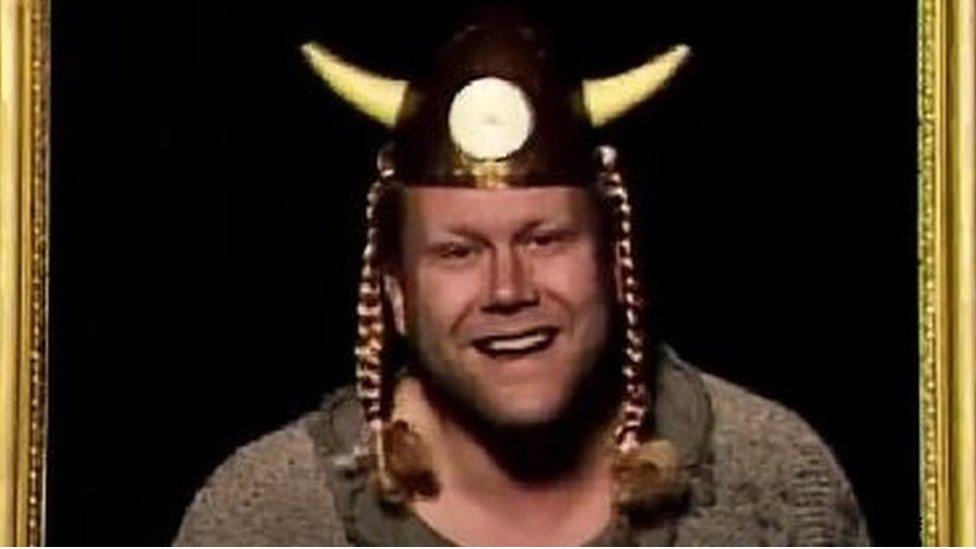'Giving something back': Denmark's refugee entrepreneurs
- Published
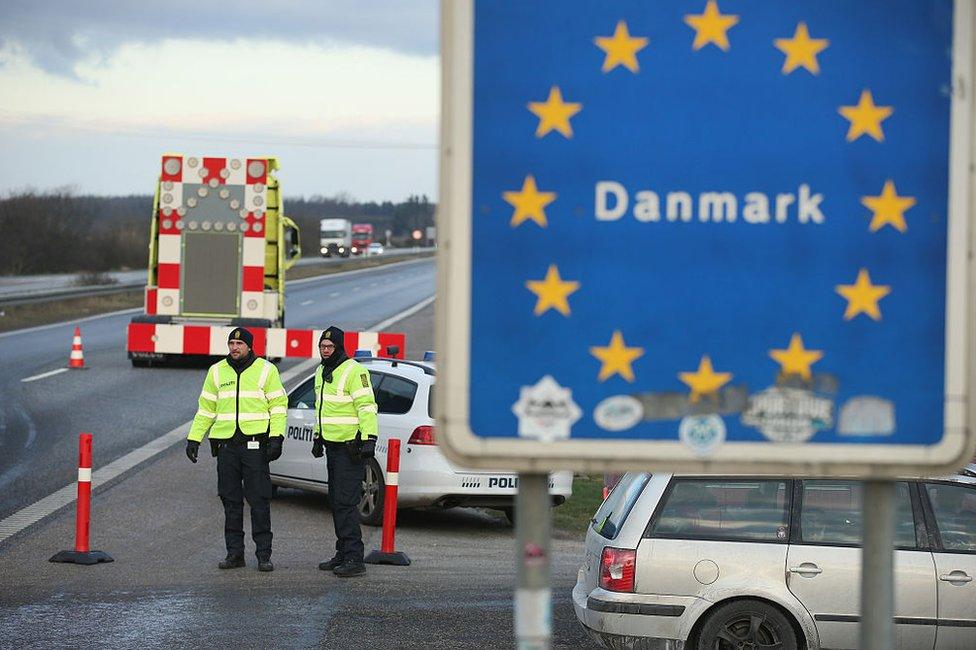
Denmark is not participating in the 2015 EU solidarity plan, which hopes to settle 160,000 Syrian and Eritrean refugees across the continent
A new project in Denmark aims to help refugees start their own businesses, challenging the perspective, held by some, that they are a burden. But not everyone in the country is happy about the move.
I got to visit Noura Bittar at her home only after I promised to ignore the mess.
She is a proud woman, and, in fact, her small flat in Copenhagen seemed pretty tidy, given that she runs a catering business from here, while also looking after a new-born baby.
And yet, it was easy to understand Noura's need to retain a sense of dignity.
She fled to Denmark from the civil war in Syria, and is troubled by the way people often perceive those classed as "refugees".
"You have that stereotyping… that we came here to take their jobs and money. And I just want to say, 'No, that's not us.'"
Noura set out to dispel that image, despite still reeling from the fighting back in her home town of Homs, where friends were killed and close family members injured.
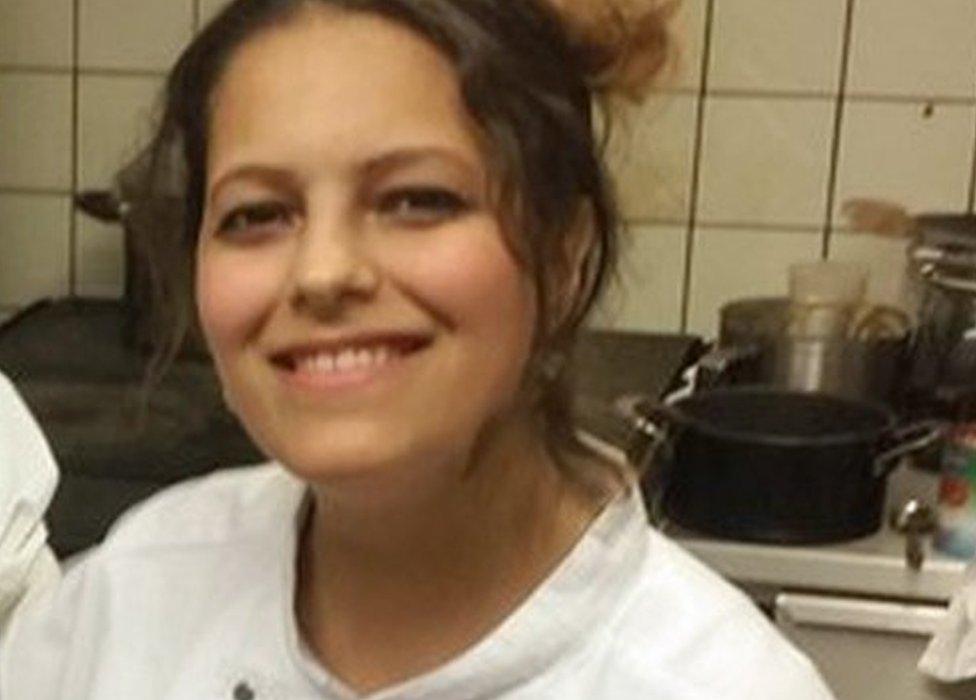
Noura Bittar teaches cooking to Danish women who have been victims of domestic abuse
She set up a catering business, hoping it would introduce more Danes to the cuisine of her homeland, while making her financially self-sufficient in the process.
But even while she was building up the company, and not yet turning a profit, Noura began offering free cookery classes to Danish women who had been victims of rape or domestic abuse.
"Danish society gave us security. It gave us a place to stay. I wanted to say thank you."
Such gratitude is not always reciprocated. Opinion polls have shown a marked increase in the proportion of Danish people who want to stop refugees coming to their country.
'Passion and drive'
This antipathy has become particularly pronounced since 2015, when more than 20,000 people registered in Denmark as asylum seekers.
Danish television screens were filled with images of bedraggled people dragging their worldly possessions along the motorway.
Many had crossed the border from Germany, reckoning Scandinavia was a better bet for resettlement.
Watching this development was a young academic researcher, Conor Clancy.
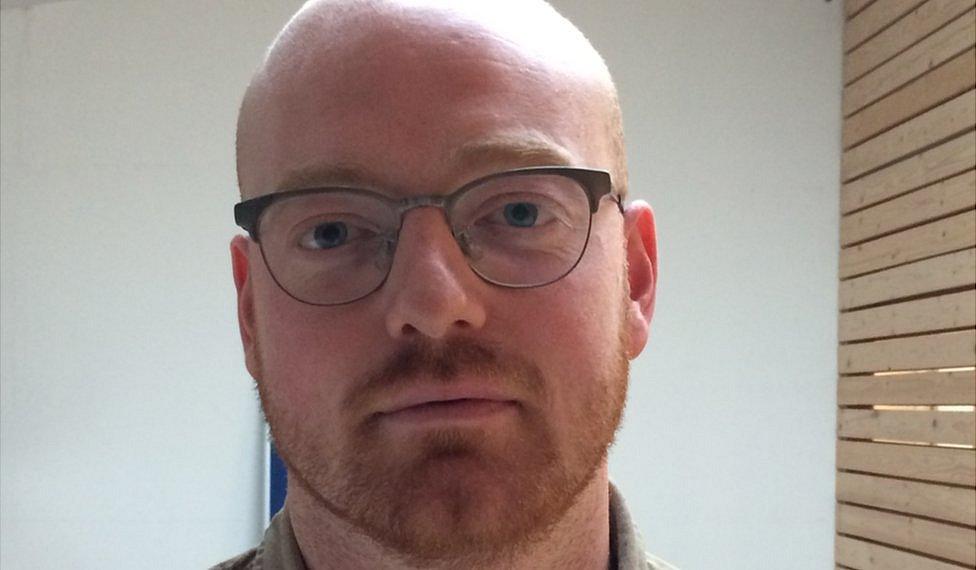
Conor Clancy came up with the idea of the entrepreneurship project
Mr Clancy is something of an "immigrant" to Denmark himself, born to an Irish father and an English mother.
He was doing a master's thesis on management and entrepreneurship, and came up with an idea that was, to say the least, going against the grain.
He thought the new refugee arrivals should be seen as a resource, not a burden.
"Our research showed that when they're in the camps, [refugees] show a lot of entrepreneurial attributes," he says. "They come with passion and drive."
'Break down the wall'
Mr Clancy formed Refugee Entrepreneurs Denmark, external, which helps new arrivals such as Noura to start their own business, supporting them with information, advice and general encouragement.
He hopes this will enable refugees to become independent, no longer the "burden" some Danes seem to fear.
And, more ambitiously, he believes these businesses will eventually create jobs that employ local Danes.
"This will put more tax into the system," he says, "but also help break down the wall between refugees and their host nation."
Yet those walls are high, with many refugees struggling to fit into Danish society, according to another would-be entrepreneur I met, Khalid Jesri.
He also fled here from Syria, and says at first, it was challenging to perform even the most basic tasks, let alone run a business.
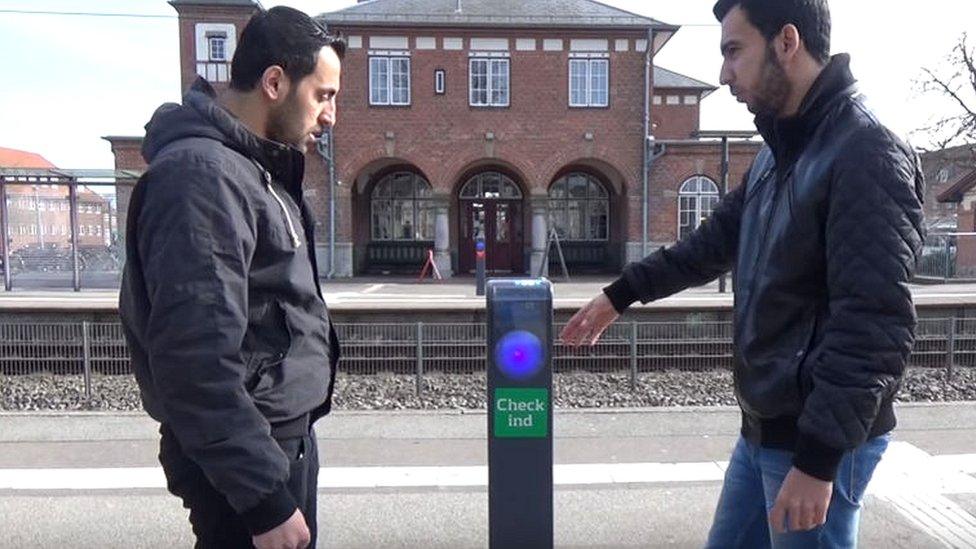
Khalid Jesri has produced a number of videos to show refugees basic tasks, in this case, how to "touch in" and "touch out" at a train station
"Refugees don't know how to take out the garbage, or how to pay bills," he says.
Khalid's solution was to create his own start-up, producing online information for refugees.
With text and videos, his website teaches them how to navigate the contours of Danish society, including lessons about language and social etiquette, as well as practicalities, such as how to buy a train ticket.
Like Noura, his own traumas are still raw. Khalid took seven months to reach Denmark from Syria, seeing fellow asylum seekers drown at sea along the way.
And once again, at the heart of his project is a hope that refugees can become self-sufficient, or, better still, net contributors to the Danish economy.
"In Syria, we are accustomed to hard work," he says. "We are not used to asking for any kind of support."
'Different cultural background'
Martin Henriksen believes refugees are already getting too much support.
An MP for the nationalist Danish People's Party, he took me for a stroll round the Norrebro area of Copenhagen, where many refugees have settled.
"A lot of people here have a different cultural background, religious background - they speak another language," he says, pointing out the number of homes with drawn curtains.
He takes this as symbolic of separate lives that some foreign-born residents lead.
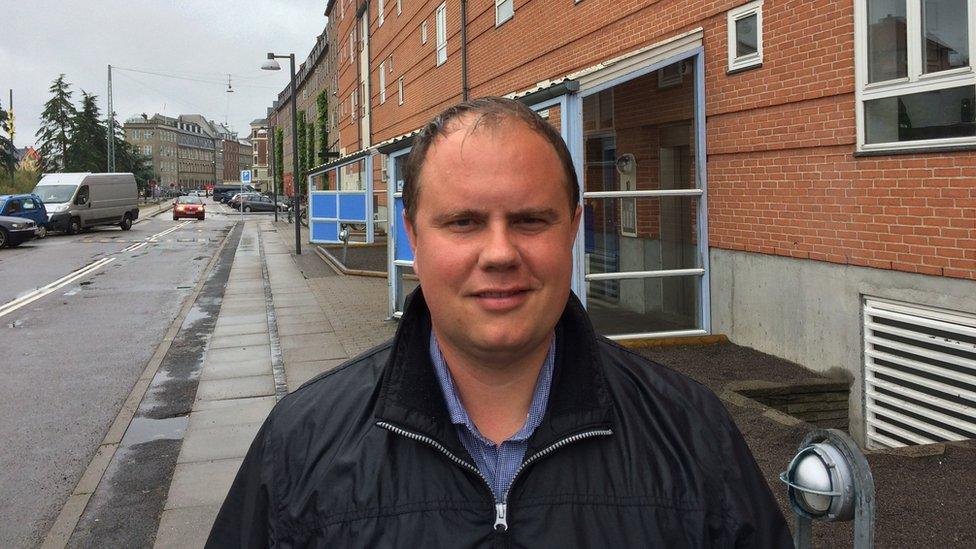
Danish MP Martin Henriksen is critical of the idea of using refugees as a resource
The DPP came second in the last Danish election, on a platform of opposing immigration and the granting of asylum. Mr Henriksen rejects the idea that refugees can be a resource.
"The majority don't have the will," he says.
Asked what he thinks of the Refugee Entrepreneur project, Mr Henriksen laughs and says he would not ban such "voluntary work". But he insists the refugees represent a problem, not a potential source of economic growth.
The Danish parliament will re-convene this autumn, at which point the DPP will put forward a motion to stop any new refugees from coming to the country.
But Noura and Khalid seem undeterred, with plans to expand their businesses.
Khalid in particular hopes his website might one day have versions in other countries where refugees have settled, giving them their own online learning tools to help them become net contributors in their adopted host nations too.
- Published8 January
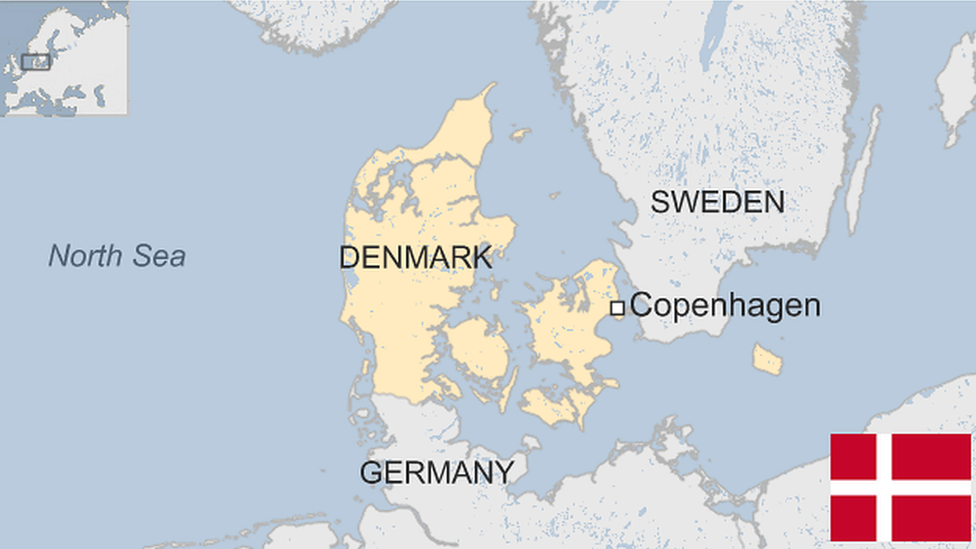
- Published13 June 2017
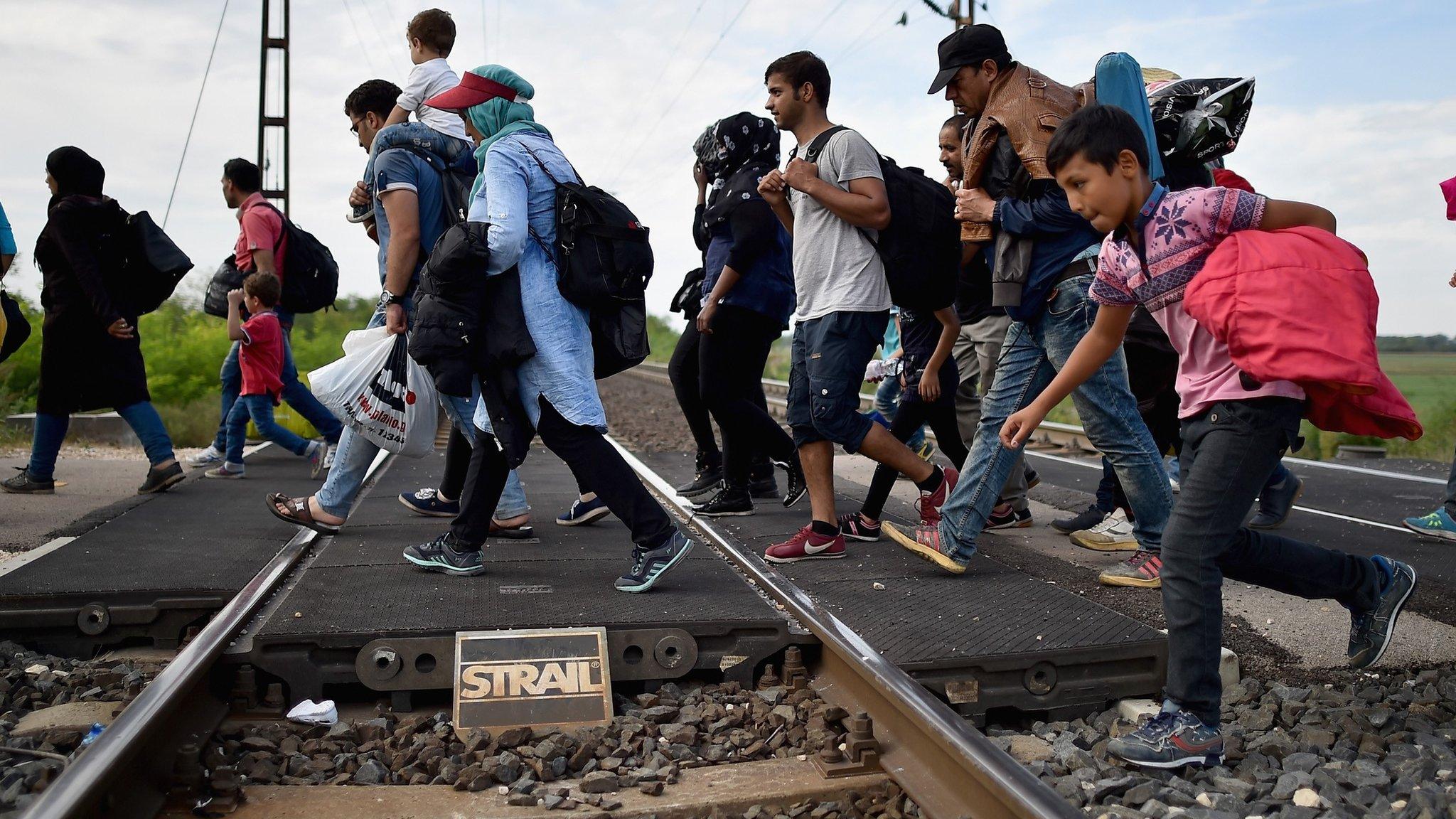
- Published12 July 2017
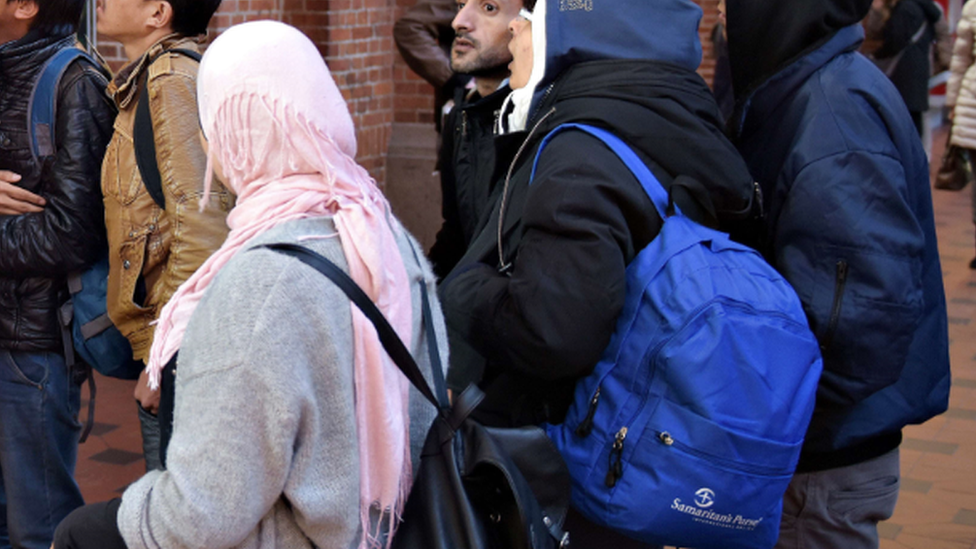
- Published4 November 2016
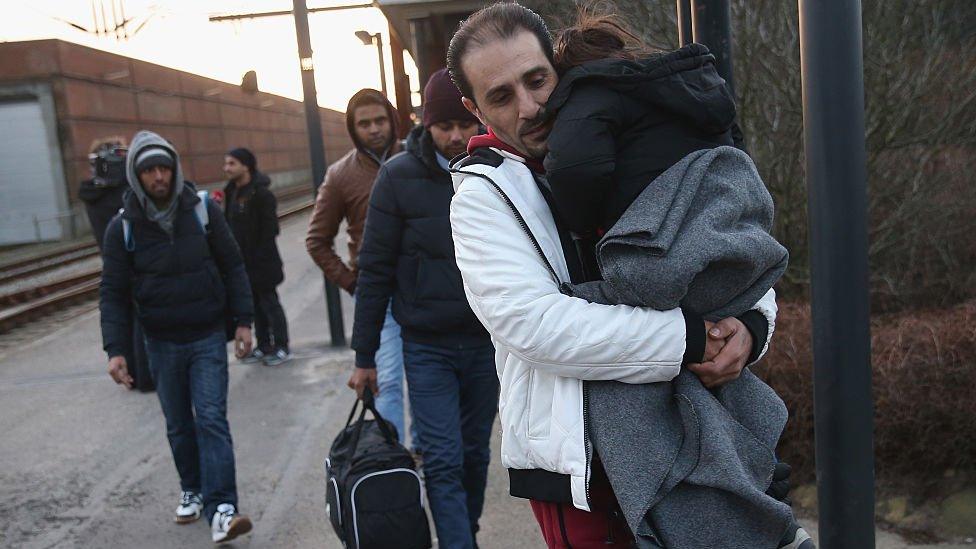
- Published3 February 2016
